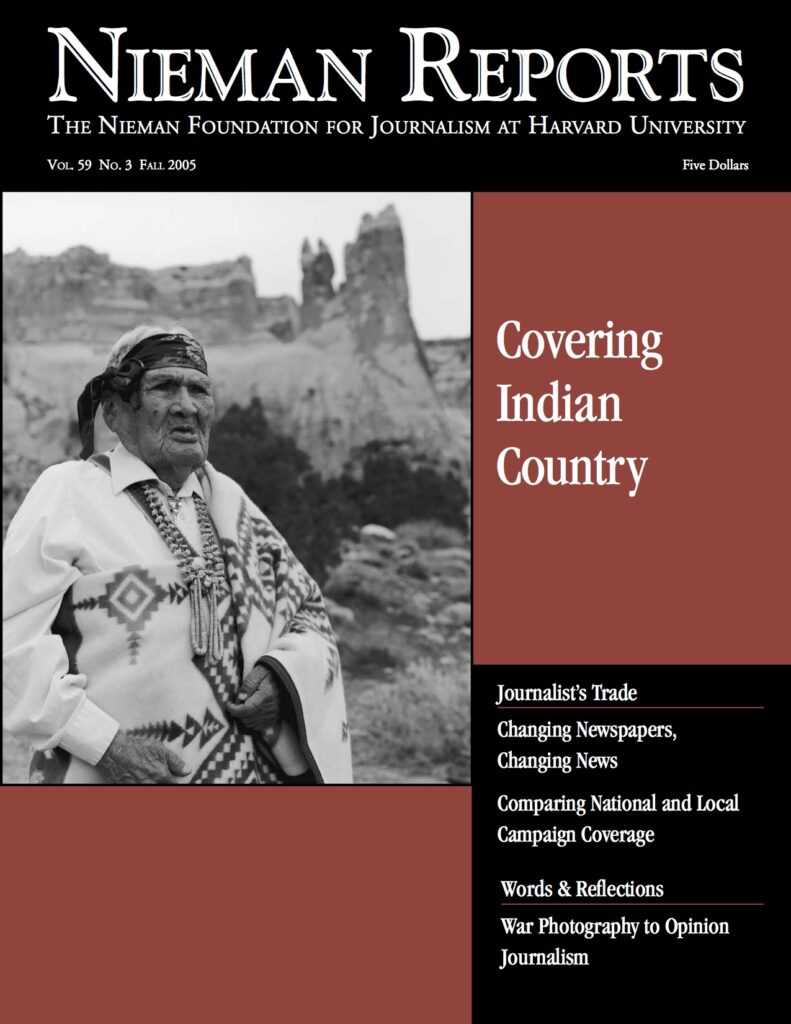
These excerpts from editorials illustrate how, as Michael Gartner writes, “personality—personal and institutional—made the men voices to be listened to and made the institutions forces to be reckoned with.”
“Unworthy of the Bench from which it was delivered, unworthy even of the previous reputation of the jurist who delivered it, unworthy of the American people, and of the nineteenth century, it will be a blot upon our National character abroad, and a long-remembered shame at home.”
— The Albany Evening Journal, March 10, 1857, commenting on the Dred Scott decision by the Supreme Court.
Related Article
“Griping About Newspaper Editorials Doesn’t Change”
– Michael Gartner
“Dear Sir: I do not intrude to tell you—for you must know already—that a great proportion of those who triumphed in your election, and of all who desire the unqualified suppression of the Rebellion now desolating our country, are sorely disappointed and deeply pained by the policy you seem to be pursuing with regard to the slaves of Rebels. I write only to set succinctly and unmistakably before you what we require, what we think we have a right to expect, and of what we complain.”
— Editorial written by Horace Greeley in The New York Tribune, August 20, 1862, addressed to President Lincoln.
“There are old reasons enough against woman suffrage, and it would be futile to cite them now. Men’s minds are made up. At this time of all times the poetizing and enfeebling of the practical instincts, experience and capability of the State by the admission of women as voters would be a perilous venture.”
— An editorial appearing in The New York Times, November 12, 1915, opposing women’s suffrage.
“First of all on bended knee we should pray God to forgive us. Then erect as men, Christian men, soldierly men, to the flag and the fray—wherever they lead us—over the ocean—through France to Flanders—across the Low Countries to Koln, Bonn and Koblens—tumbling the fortress of Ehrenbreitstein into the Rhine as we pass and damming the mouth of the Mozelle with the debris of the ruin we make of it—then on, on to Berlin, the Black Horse Cavalry sweeping the Wilhelmstrasse like lava down the mountain side, the Junker and the saber rattler flying before us, the tunes being ‘Dixie’ and ‘Yankee Doodle,’ the cry being, ‘Hail the French Republic—Hail the Republic of Russia—welcome the Commonwealth of the Vaterland—no peace with the Kaiser—no parley with Autocracy, Absolutism and the divine right of Kings—to Hell with the Hapsburg and the Hohenzollern!’”
— An editorial written by Henry Watterson in the Courier-Journal, April 17, 1917, as the United States was preparing for war.
“You say that freedom of utterance is not for time of stress, and I reply with the sad truth that only in time of stress is freedom of utterance in danger …. Only when free utterance is suppressed is it needed, and when it is needed, it is most vital to justice.”
— An editorial written by William Allen White in the Emporia Gazette, July 27, 1922, during labor unrest in Kansas.
“Frank Munsey, the great publisher, is dead. Frank Munsey contributed to the journalism of his day the talent of a meat packer, the morals of a moneychanger, and the manners of an undertaker. He and his kind have about succeeded in transforming a once noble profession into an eight percent security. May he rest in trust.”
— An editorial written by William Allen White in the Emporia (Kan.) Gazette on December 23, 1925, on the death of Munsey, who was one of the early owners of a newspaper chain.
“A bully by nature, a mountebank by instinct, a Senator by choice…. Thus this preposterous blob excites our pity if not our respect, and we leave him to his conscience in order that he may be entirely alone and meditate over the life of a charlatan whose personal interest and personal vanity are always of paramount concern to him.”
— Editorial written by Grover Cleveland Hall in the Montgomery Advertiser, August 19, 1927, about Alabama Senator Tom Heflin.
“A newspaper exists only to provide information for its readers; it has no other reason for being. It provides that service only so long as it diligently seeks out what is happening and reports it as accurately and as clearly as it can.”
— Editorial written most likely by Vermont Connecticut Royster in The Wall Street Journal, June 16, 1954, after General Motors pulled advertising because of news stories.


